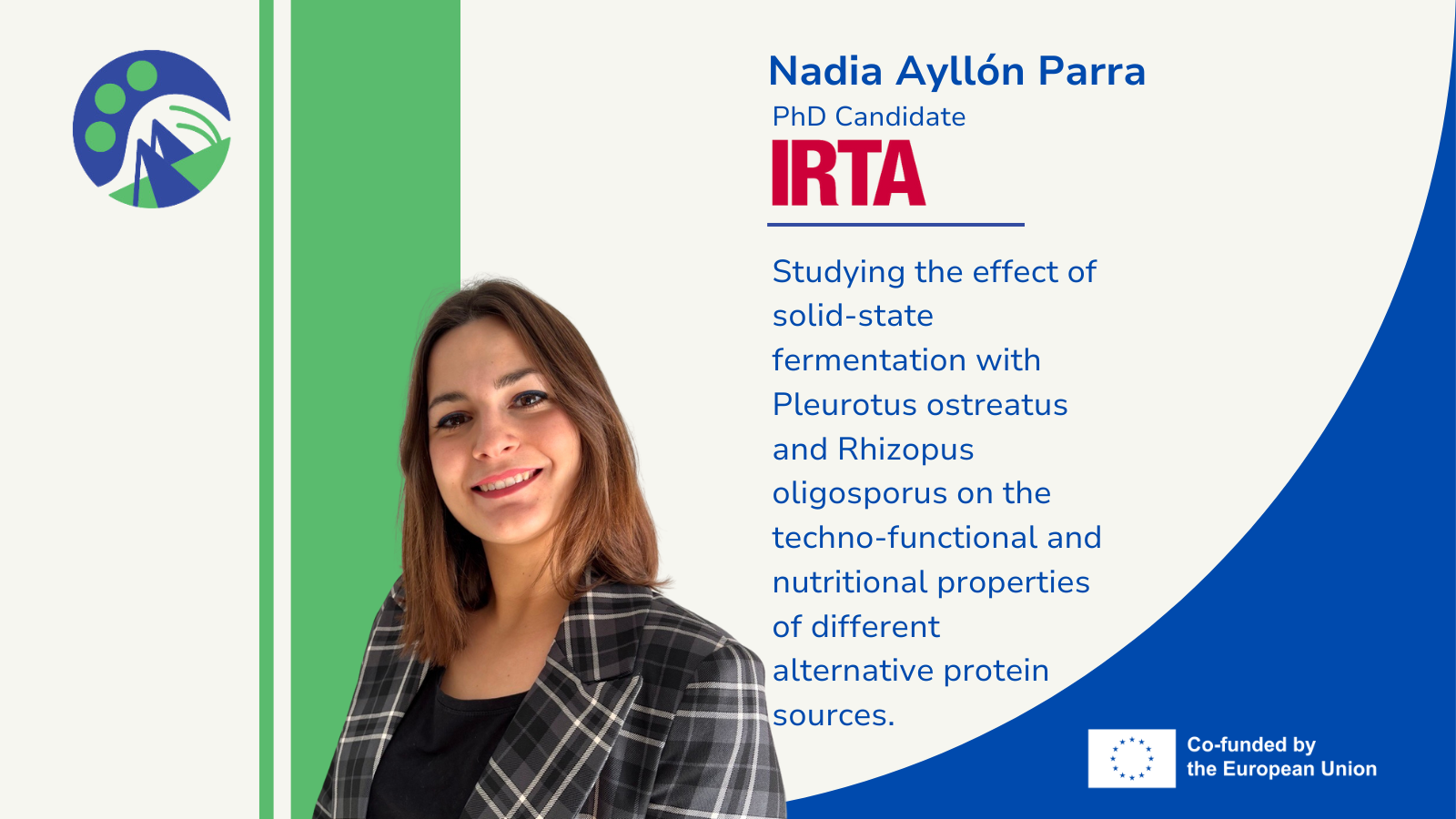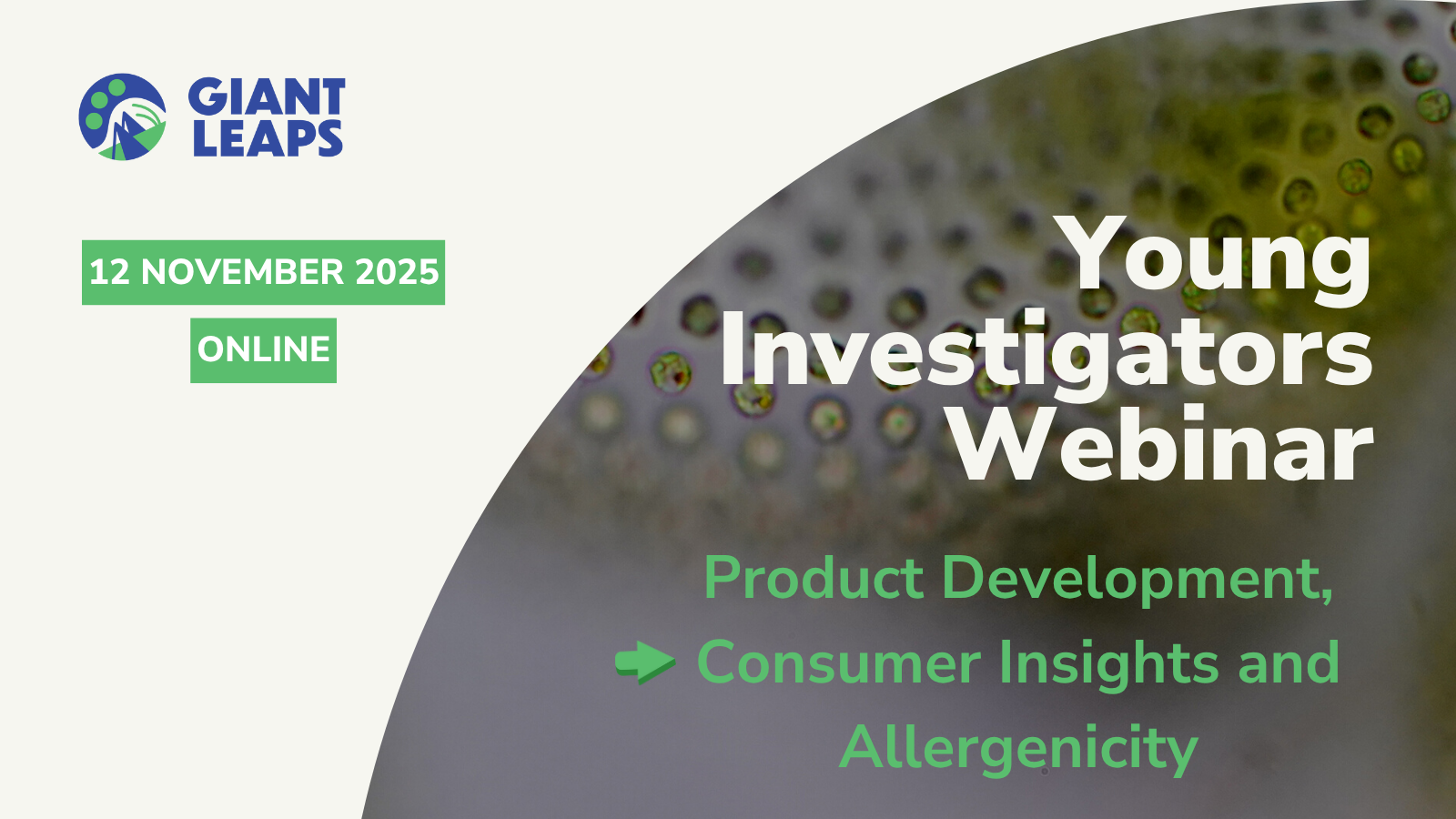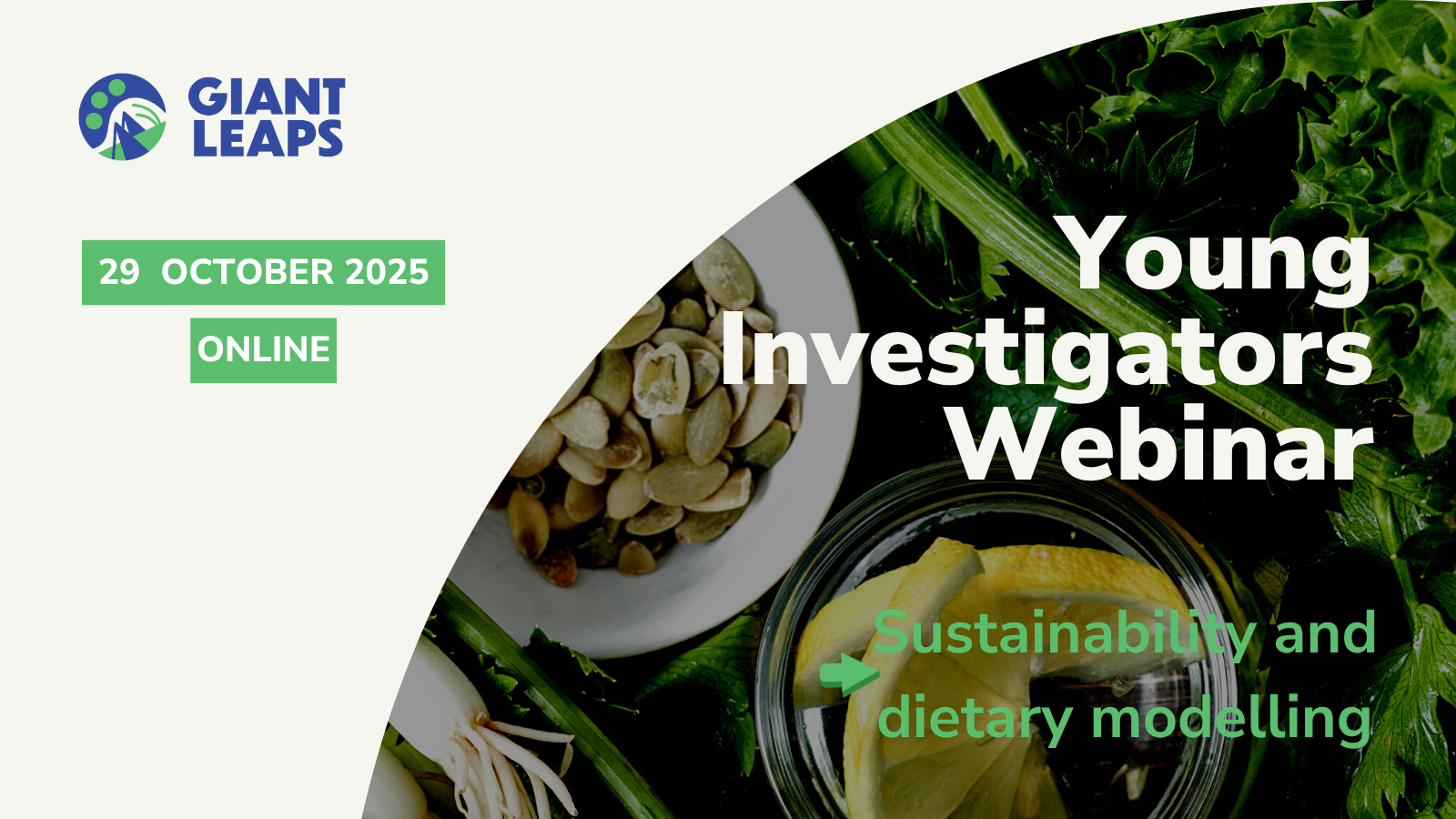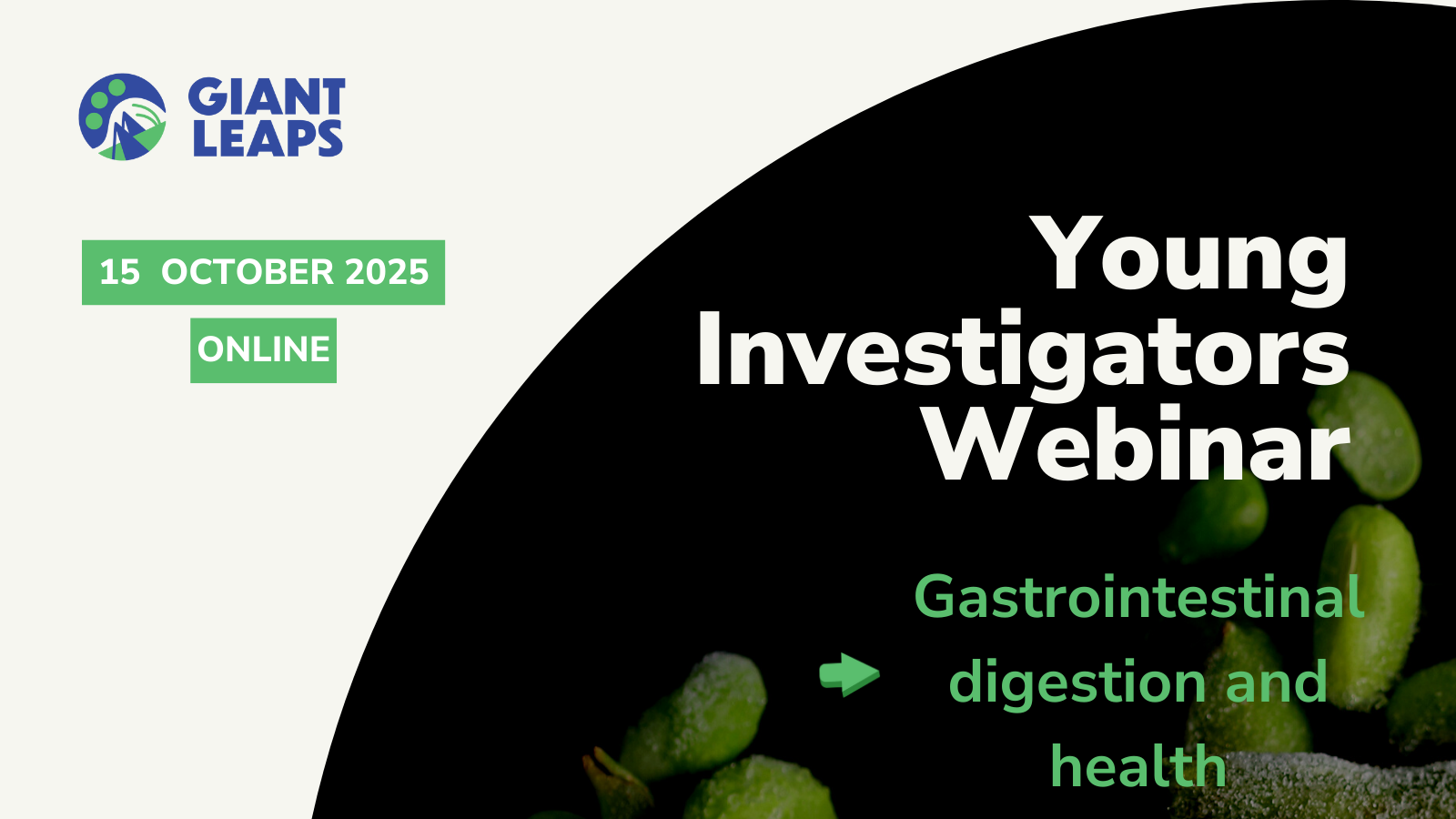Meet our Young Investigators: Nadia Ayllon, IRTA

Nadia has a degree in food science and technology from the university of Barcelona and a master's degree in food innovation and development from the same university. She is currently in her third year of her PhD at IRTA, under the supervision of Albert-Ribas Agusti. Their work is focused on WP2 on the functionalisation of alternative proteins.
What is the main focus of your research?
My work is based on studying the effect of solid-state fermentation with Pleurotus ostreatus (oyster mushroom) and Rhizopus oligosporus (used for tempe) on the techno-functional and nutritional properties of different alternative protein sources.
Where are you based? What do you enjoy about your university? Does it foster your interest in alt proteins? Is there a local community that inspires your work?
I work at IRTA in the area of food industries. What I like most about working at IRTA is being able to apply your research on a more industrial scale and being able to see the usefulness of your research. In addition, IRTA is currently promoting research into alternative proteins and fermentation in particular.
What sparked your personal interest in the topic of dietary shifts?
My personal interest in dietary change stemmed from my concern about the high meat consumption and the significant environmental impact it generates. By observing how meat production contributes substantially to deforestation, greenhouse gas emissions, and the depletion of natural resources, I was motivated to explore more sustainable food alternatives. I found that reducing meat consumption, combined with the use of alternative proteins, could be an effective way to mitigate these negative effects and promote a more environmentally friendly lifestyle.
What are your aspirations for the future, and how do you hope your work will make an impact?
My aspirations for the future would be to continue working in the field of alternative proteins and specifically on mycoprotein as it is a very interesting area and there is still a lot to be discovered. I hope that my research can provide science with more information to further advance the use of solid-state fermentation to produce ingredients with better techno-functional and nutritional properties.



